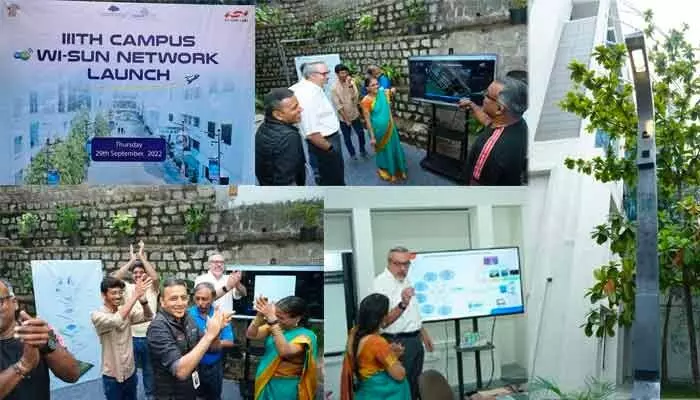Hyderabad: The Smart City Living Lab at the International Institute of Information Technology (IIIT), Hyderabad has collaborated with one of its corporate partners Silicon Labs to launch a campus-wide Wi-SUN network to enable research and solutions for IoT-based smart cities. This is the first of its kind in India.
Wi-SUN (Wireless Smart Ubiquitous Networks) is an open-standards-based technology designed to meet the needs of smart-city operations. Despite slower communication speeds than Wi-Fi, it outperforms the latter in terms of longer reachability, stable connection in the face of obstacles, and lower power consumption.
Smart streetlights
While the IIITH project aims to convert all campus streetlights to Wi-SUN smart streetlights, the larger goal is for some of the poles to provide more than just light. Many cities around the world are upgrading their streetlights not only to make them more energy efficient, but also to enable smart city solutions. With IIITH serving as a smart campus, employing various electronic methods and sensors to collect critical data on air quality, weather, energy consumption, water quality, and other factors, upgrading the humble street lights to provide these smart city services makes sense. The Living Lab is currently testing a single smart lamppost outfitted with the necessary sensors, as well as a camera and speaker.
A digital display is used to deliver information about air quality and weather. "The camera improves public safety and could be used for crowd control. The speaker can be used for a variety of purposes, including guiding the visually impaired and disseminating local weather information. For example, wouldn't it be cool if we were encouraged to keep our umbrellas handy in case of a cloud burst?" said Anuradha Vattem, lead architect at Living Lab.
